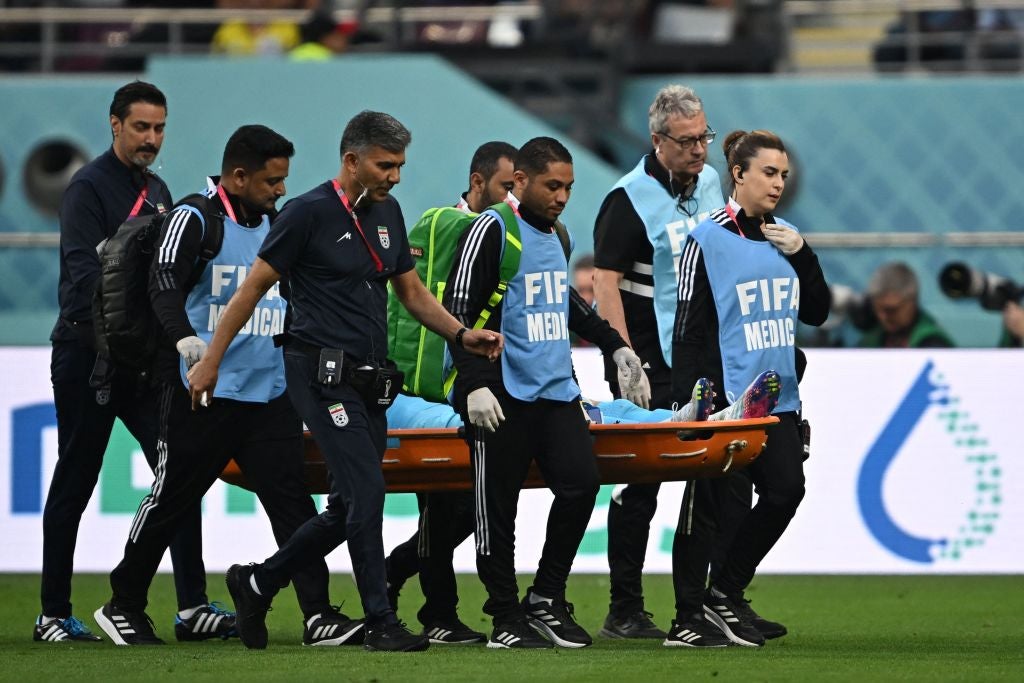
Iran goalkeeper Alireza Beiranvand attempted to play on against England despite suffering a head injury in a sickening clash with his own player, as Fifa’s concussion protocols came under fire during the World Cup clash.
Beiranvand collided with one of his own defenders while punching clear a cross from Harry Kane in the opening stages of his team’s World Cup opener against England.
Beiranvand received medical treatment for around five minutes before appearing to tell Iran’s medical team that he wanted to play on - despite the goalkeeper looking visibly dazed and showing concussion symptoms, as well as a bloodied nose.
However, within two minutes of play restarting Beiranvand signalled that he could not continue and was replaced by back-up goalkeeper Hossein Hosseini. Beiranvand then fell onto his back before he was stretched off the pitch.

Beiranvand was replaced with Iran using a concussion substitute - which does not count towards the allocated five changes - but the seriousness of the injury and the fact the goalkeeper was able to decide by himself to stay on the pitch was roundly criticised on social media.
Former England international Jermaine Jenas said the situation was “ridiculous” and “out of order” - as well as a symptom of football’s general attitude towards concussions. Fifa have been criticised for not taking head injuries and player welfare seriously enough, following research that has showed the link between former players and dementia.
Luke Griggs, Headway’s interim chief executive, could not believe what he was witnessing.
He said in a statement issued to the PA news agency: “It is an utter disgrace that the Iran keeper Alireza Beiranvand was allowed to stay on the pitch.
“It was irrelevant that he came off a minute later, he shouldn’t have stayed on for a second, let alone a minute.
“He was clearly distressed and unfit to continue, this seems to be another case of the decision being made by the player and not medical staff.
“This was the first test of the Fifa World Cup concussion protocol and it was an abject failure.”







